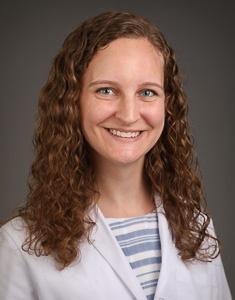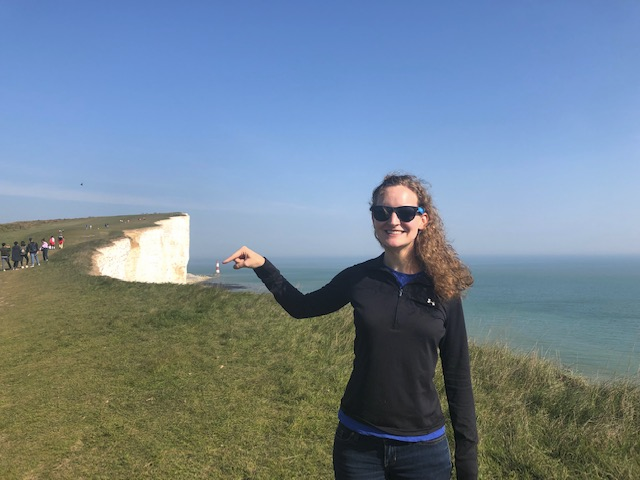
Amanda Currie’s love of the brain started in high school and has only grown since. Now in her third year of her neurology residency, Currie is seeing patients across our hospital and clinic system, mentoring second-year residents, and exploring interests in deep brain stimulation and movement disorders. For this week’s “Spotlight” interview, Currie talks to us about learning from (and connecting with) patients, the joys of her current year, and enjoying music, travel, and hiking when she’s not at Duke.
How and when did you first get interested in neurology? What disciplines or aspects of the field interest you the most?
I've been fascinated by the brain since high school. It's the lens through which we see and experience the world, and I think health of the nervous system is a key factor in a person's quality of life. I had a chance to work in a clinical research lab during college and medical school, and the more I learned, the more I wanted to learn!
In a sense, I've been lucky that my professional path has been pretty clear since early in my education. As far as what interests me most, we apply for fellowships in our PGY-3 year, and I'm excited to be applying to movement disorders! Deep brain stimulation is an exciting new frontier, and I also love how much movement specialists can learn about a person's nervous system by just spending time listening to and examining patients.
What are your responsibilities as a Senior Assistant Resident (SAR)? What does a typical day look like for you?
SAR year is the best! We get to spend more time practicing procedures like EMG and EEG. We also spend a lot of time on the consult service and night float, where we see consults for patients on the floor, in the ED, or in the ICU. We run plenty of stroke codes and have plenty of opportunities to earn a brain pin!
One of the most rewarding responsibilities we have is mentoring the PGY-2s. I love helping them develop their own styles for seeing consults and doing neuro exams. It's been amazing to work with some of the same residents later in the year and see how much they've learned and grown! Every day is different, and I like it that way!
What’s the hardest aspect of your current time as a resident?
Covid.
What’s one experience from your PGY-2 (Junior Assistant Resident) year that you found especially helpful or memorable?
Dr. Chilukuri had some helpful insight to share when I worked with her on the stroke service. We were taking care of a patient who died unexpectedly. A lot of us on the team were feeling sad about the situation, so we sat down together to debrief. She said something along the lines of: "the unfortunate reality of medicine is that you will have patients who will die. You'll become attached to some of them. And that's how you know you've chosen the right field. If you didn't feel sad, that's when I'd start to feel concerned."
A big part of PGY-2 year is figuring out how neurology and the hospital works, and it's easy to get caught up in the details of day-to-day care for our patients like when to do DAPT or which patients are appropriate for observation vs. admission. At times I found myself having trouble seeing the forest through the trees, and I really appreciated her perspective in that moment.
What other passions or hobbies do you have outside of the Department?
I'm from Nashville, so music (but not necessarily country music!) runs through my veins. I love to travel and hike; a highlight was completing the Camino de Santiago in Spain just before starting medical school!
